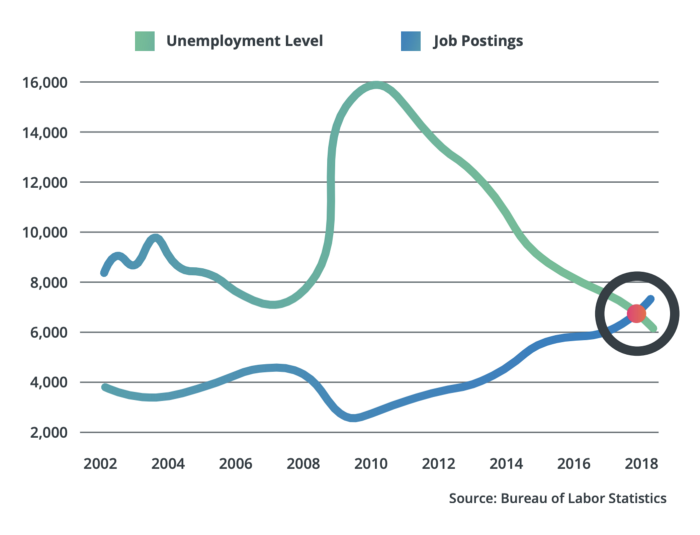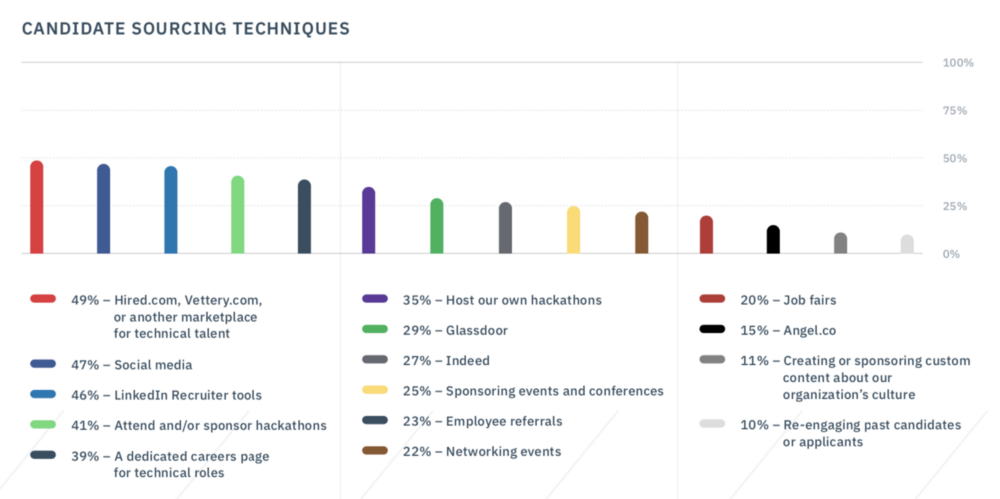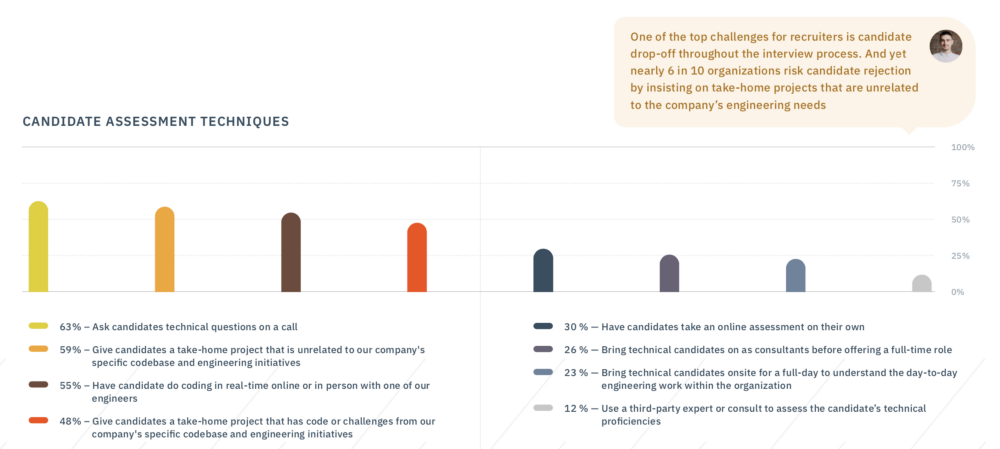At Coderbyte, we’re thrilled to introduce our first annual report on The State of Technical Recruiting. Our objective with this initial foray is to continue leveling up the very difficult task of hiring great programmers in 2019.
In this report, we illustrate the results of surveying more than 200 stakeholders involved in the technical recruiting process in order to identify the most common challenges, best practices, and opportunities.
The unsung heroes fueling company growth
We’ve long believed that technical recruiting is one of the most difficult and underrated roles and functions today. Companies cannot grow without engineering talent, but there are three common challenges that technical recruiters face:
1. It’s a candidate’s market
The overall labor market is incredibly tight. There are far more openings than qualified candidates according to the Bureau of Labor Statistics:

The problem is even more acute and getting worse for technical roles. According to the Bureau of Labor Statistics, “in 2020 there will be 1.4 million more software development jobs than applicants who can fill them. Schools and other tech education programs can’t seem to produce candidates fast enough.”
There simply aren’t enough qualified candidates, yet that never seems to be an acceptable excuse for why your engineering roles have remained unfilled for months. Many companies and talent acquisition teams are beginning to explore techniques such as setting up a dedicated employer brand around engineering and turning to expensive candidate marketplaces, like Hired and Vettery.

2. Qualifying candidates is an ever-evolving game
As companies adopt newer technologies and compete in emerging markets, their engineering needs continuously evolve. But that doesn’t necessarily reflect the skill-sets available in the market for candidates.
Further, most technical recruiters face overwhelming information asymmetry — they often don’t have technical backgrounds but are responsible for initially assessing those who do (or, at least, who claim to). Not only do recruiters have to understand the qualifications set by their own engineering team, they have to ascertain the extent to which a candidate is qualified for an in-person interview.
The best tech recruiters don’t simply pass along every candidate that comes along. Engineering time and resources are incredibly scarce, and so engineering teams rely on technical recruiters to prioritize pre-qualified candidates for interviews. (That’s the area we most focus on at Coderbyte, having spent the last year building a powerful technical assessment solution.)

3. Lack of best practices and resources
Recruiters routinely tell us that their industry is rife with misinformation, misguided techniques, and even questionable behavior by competitors. Candidates often complain of being bait and switched by false job openings, having to answer irrelevant riddles during interviews, and then being ghosted at various points during the interview process (actually, we’ve heard this last one as much from recruiters too).

There just isn’t a modern playbook for recruiting technical talent in today’s market. The biggest technology companies in the world have the deep pockets to simply ‘throw money at the problem.’ But for everyone else, success requires a thorough and delineated process of trial and error, networking, and continuous improvement.
We hope our report accelerates the emergence of best practices and enlightenment for the industry.

